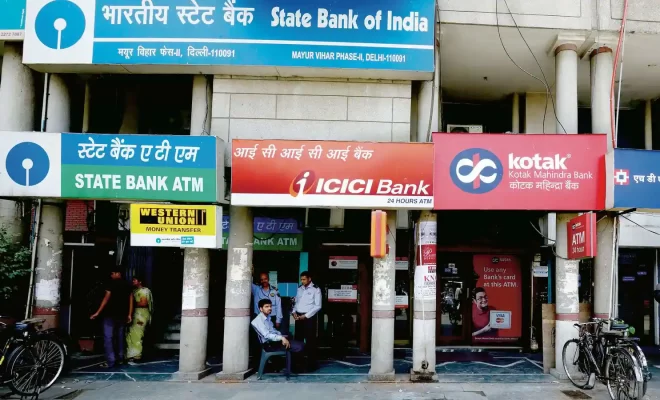Haiti Money Exchanges Close to Protest New Central Bank Regulation

WASHINGTON / PORT-AU-PRINCE – If you want to send money to someone in Haiti, collect money sent to you in Haiti, or exchange U.S. dollars for Haitian gourdes, you’re out of luck as of October 1.
Haiti’s money exchange businesses are shuttered, and agents are on strike to protest a new regulation issued by Haiti’s central bank, Banque de la Republic d’Haiti (BRH).
Law 114-2, announced by the Ministry of Commerce and Industry on September 18, aims to “regularize” money transfer procedures by mandating all transactions be paid out in Haitian gourdes. U.S. dollars cannot be collected even when the amount is sent in dollars, unless the recipient has a bank account with a balance in U.S. dollars.
“We feel they are trying to target the middle class. This is not in our interest, so we are in the streets protesting as a first measure to let the officials know we won’t accept this,” said Renel Pierre, president of the National Union of Haitian Money Exchange Agents (Union Nationale Des Sous Agents de Transfers d’Haiti, UNATHA), in an interview with VOA Creole during the protest.
Pierre said the agents are especially angry about not having access to U.S. dollars.
“It’s not good for the people, it’s not good for business,” he said.
“I feel threatened,” a money transfer employee who participated in the protest told VOA Creole. “Look at how many people this decision is putting out of work. I’m not working today; this affects my children and other people who are connected to this business. Factories are starting to close. This is not good for Haiti.”
The man, who did not want to give his name, said transfer agents would like to discuss the new measure with officials and negotiate better terms.
Diaspora remittances
The Haitian diaspora sent about $3.3 billion in remittances to Haiti in 2019, according to World Bank estimates. That figure is six times more than the amount sent in 2000. These global remittances accounted for 37% of Haiti’s Gross Domestic Product (GDP), making the country the second-largest recipient of remittances in the world, factoring in GDP. Number one on the list is Tonga, where remittances account for 38% of the GDP.
Mandating the gourde
In a September interview with VOA Creole, Frantz Bernard Craan, president of the Haitian Chamber of Commerce and Industry, explained why it is important to regulate how business transactions are done.
“In every country, prices are displayed in the local currency. In Haiti, for years we have been doing business in two currencies and people thought that was normal, but eventually we had to correct that,” he explained.
According to Craan, in September 2018 the government issued a decree mandating all businesses display their prices in gourdes, but because of the economic crisis that was exacerbated by the COVID-19 pandemic, most businesses did not adhere to it. So in September 2020, the Minister of Commerce issued a communique giving all businesses operating in Haiti 72 hours to display their prices in gourdes.
Discussions followed on how to make that happen without causing too many disruptions for businesses and consumers. A memorandum was signed on September 22, he told VOA.
“As I have said, the only matter that concerns us for now is doing transactions in gourdes, but the memorandum also includes additional measures which should allow for — if everyone does their part — stabilizing the exchange rate. Because when there is instability such as we saw in 2019-2020, where the rate of inflation reached 40% and a 60% correction was needed, that makes it very difficult for businesses and consumers alike,” Craan said.
Opposition support for protest
The money transfer protest received support from opposition party Pitit Dessalines leader Jean Charles Moise, who decried the measure as extremely unfair to the poor.
“It’s as if they take us for fools,” he told VOA Creole. “They know this will benefit them (the banks). When you force people to do business in gourdes, it will create an artificial shortage of U.S. dollars in the country. People won’t find dollars they need to conduct business. That will spark inflation, too, and a shortage of goods. People must be paid remittances in U.S. dollars.”
Support for regulation
Human rights lawyer Fanfan Levelle thinks the BRH regulation is a good idea.
“I agree with law 114-2, but I also think (BRH) needs to relieve the pressure on other sectors of the economy,” Levelle said. “When you say money exchanges must pay out remittances in gourdes it’s a good decision, but let’s say a person is renting a home to someone living abroad who sends them $4,000 in U.S. dollars for rent that they go to cash in. They will receive that according to the exchange rate on the day the transaction occurred, which could cause them to fall short.”
He also expressed concern the measure will create new problems going forward.
Central bank criticism
Out on the streets of Port-au-Prince, dozens of people participated in a sit-in in front of the BRH office.
“Our demands will increase by the day,” Etzer Jean Louis, leader of the Assembly of Political Opposition Parties (Ansanm Oganizasyon Politik de l’Opozisyon), told VOA, adding that this is his seventh sit-in. “We asked him (BRH chief Jean Baden Dubois) to lower the exchange rate, he refuses to listen to reason — instead, he issued this 114-2 law. We are defending the people and we can’t let this go.”
Jean Louis also criticized Dubois, who was previously the director-general of the bank, as being unqualified for the position he holds.
“The Central Bank governor Jean Baden Dubois is not an economist, we know he’s not an economist — they put him here as a figurehead to serve the oligarchy and do their bidding. The people need to breathe. They are oppressed,” he said.
Businesses that regularly use money transfer services were also in the streets of Port-au-Prince on Thursday, in a show of solidarity. They told VOA they will keep supporting the exchange agents and money transfer owners until the BRH goes back on its decision.
Source: voanews.com














